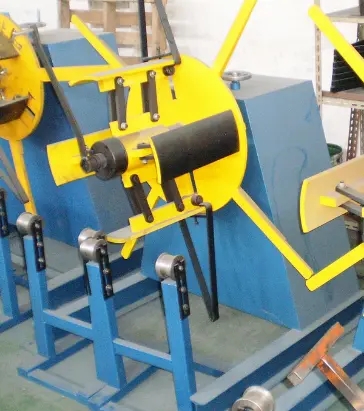
The Importance of Hydraulic Thread Rolling Machines and Finding the Right Supplier
In modern manufacturing, precision and efficiency are paramount. Among the various methods used to shape and strengthen metal components, thread rolling has emerged as a key technique, particularly for producing high-quality threaded parts. This article explores the significance of hydraulic thread rolling machines, their advantages, and provides insights into how to choose the right supplier.
What Are Hydraulic Thread Rolling Machines?
Hydraulic thread rolling machines are specialized devices used to create threads on metal workpieces through a cold-forming process. Unlike traditional cutting methods that remove material, thread rolling deforms the material to create threads, enhancing the part's mechanical properties. The process involves feeding the workpiece between two rotating rollers that have thread profiles cut into them. As the rollers turn, they apply pressure to the workpiece, forming the desired threads through plastic deformation.
Advantages of Hydraulic Thread Rolling Machines
1. Increased Strength One of the main benefits of thread rolling is that it improves the fatigue strength of the threaded parts. The rolling process aligns the grain structure of the material, resulting in stronger threads that can withstand high-stress applications.
2. Cost Efficiency By using hydraulic thread rolling machines, manufacturers can produce threads more quickly and with less material waste. This efficiency reduces production costs while maintaining high quality.
3. Consistency and Precision Hydraulic machines are known for their ability to produce consistent and accurate threads. The use of hydraulic systems allows for precise control over the pressure and speed of the rollers, ensuring uniformity in each batch of parts.
4. Versatility These machines can work with a wide range of materials, including steel, aluminum, and various alloys. This versatility allows manufacturers to cater to diverse industries, such as automotive, aerospace, and construction.
5. Automated Solutions Many modern hydraulic thread rolling machines come equipped with automation features, allowing for increased production rates and reduced labor costs. Automation can help manufacturers respond quickly to market demands and streamline their operations.

Choosing the Right Supplier
When considering the purchase of a hydraulic thread rolling machine, choosing the right supplier is crucial. Here are some factors to consider
1. Experience and Reputation Look for suppliers with a proven track record in the industry. Research their history, customer reviews, and case studies to gauge their credibility.
2. Product Range A good supplier should offer a variety of hydraulic thread rolling machines to cater to different needs. Customization options can also be beneficial if the standard models do not meet specific requirements.
3. Technical Support Ensure that the supplier provides comprehensive technical support, including installation, training, and ongoing maintenance. This support is vital for maximizing the lifespan and efficiency of the machinery.
4. Quality Assurance Check if the supplier adheres to industry standards and certifications. Quality assurance processes ensure that the machines are built to last and perform reliably under demanding conditions.
5. Cost and Warranty Compare prices among different suppliers, but remember that the cheapest option may not always be the best. Additionally, inquire about warranty and service agreements to protect your investment.
Conclusion
Hydraulic thread rolling machines are integral to producing high-quality threaded components in various industries. Their ability to create strong, precise, and consistent threads makes them invaluable. By selecting a reputable supplier with experience, a diverse product range, and strong technical support, manufacturers can ensure they are making a sound investment that will enhance their production capabilities and overall efficiency.